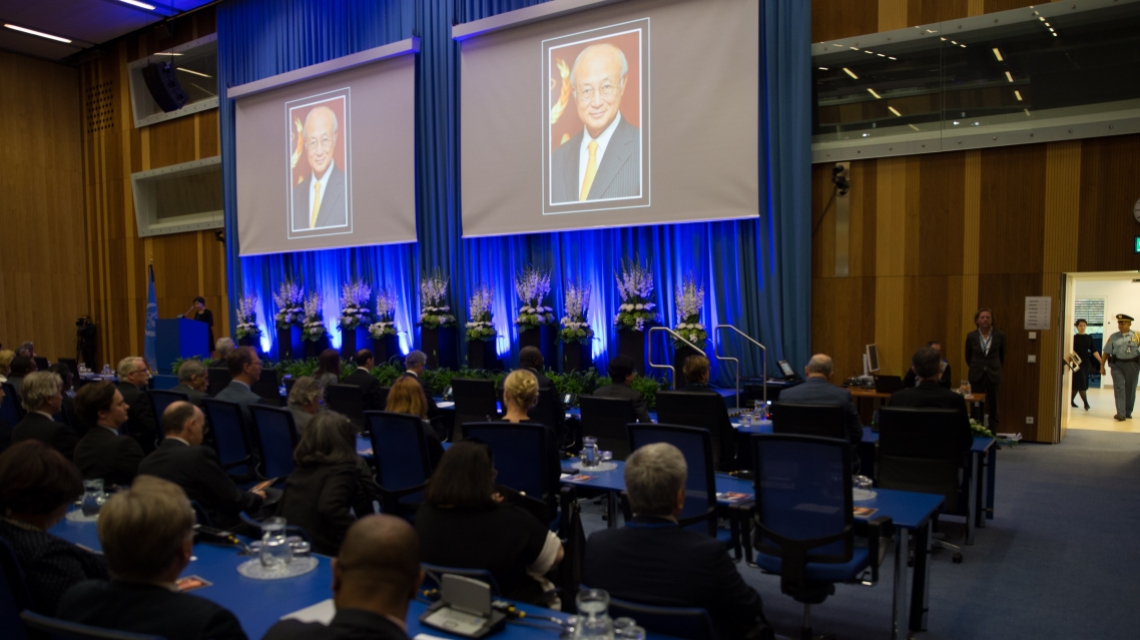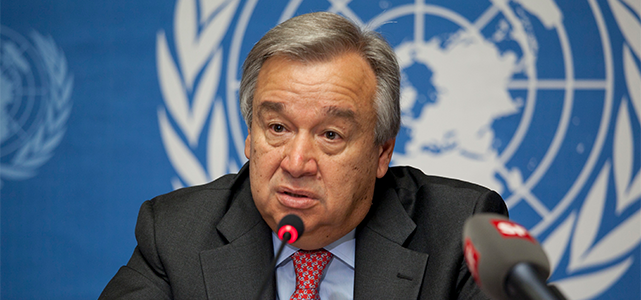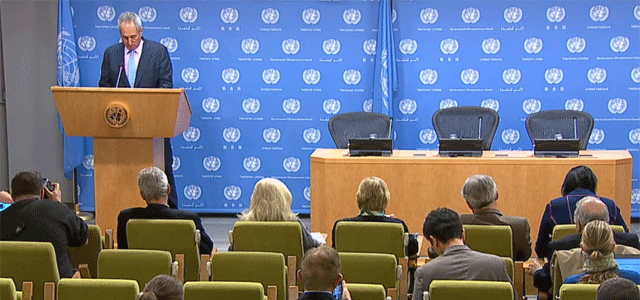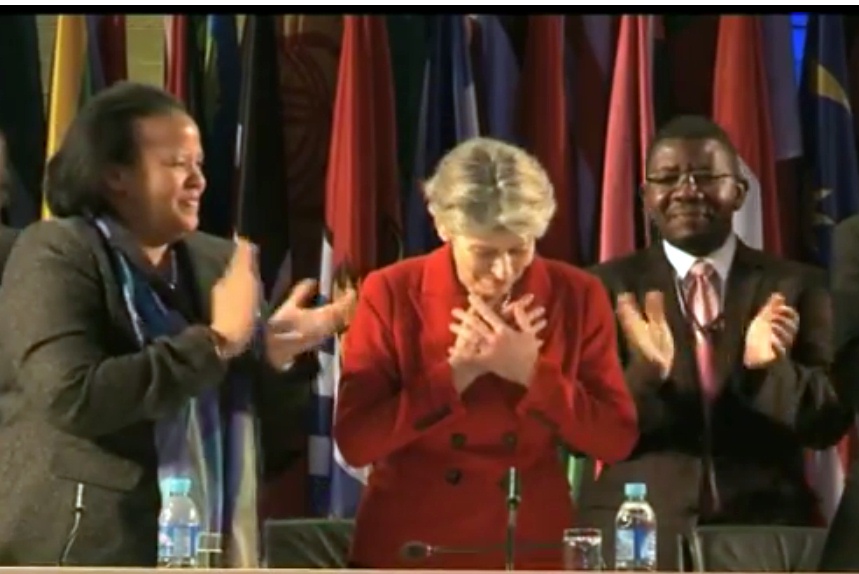The announced retirement in July of International Atomic Energy Agency (IAEA) Director-General Yukiya Amano for unspecified medical reasons, followed shortly by the revelation of his death, triggered a process for selecting his successor. Amano was in his third four-year term, having been initially selected to head the agency in July 2009, then reappointed in 2013, and again in 2017.
During his 10 years as head of the agency, Amano was well-known for his skill in diplomacy, both with world leaders and the general public impacted by the IAEA’s work. His leadership in response to the Fukushima Daiichi accident in Japan led to significant improvement in global nuclear safety. He helped bring into force new additional protocols that enhanced IAEA verification and inspection safeguards and though the IAEA was not itself directly involved, Amano played a personal role in building support and confidence for the 2015 Joint Comprehensive Plan of Action between Iran, the P5, and Germany.
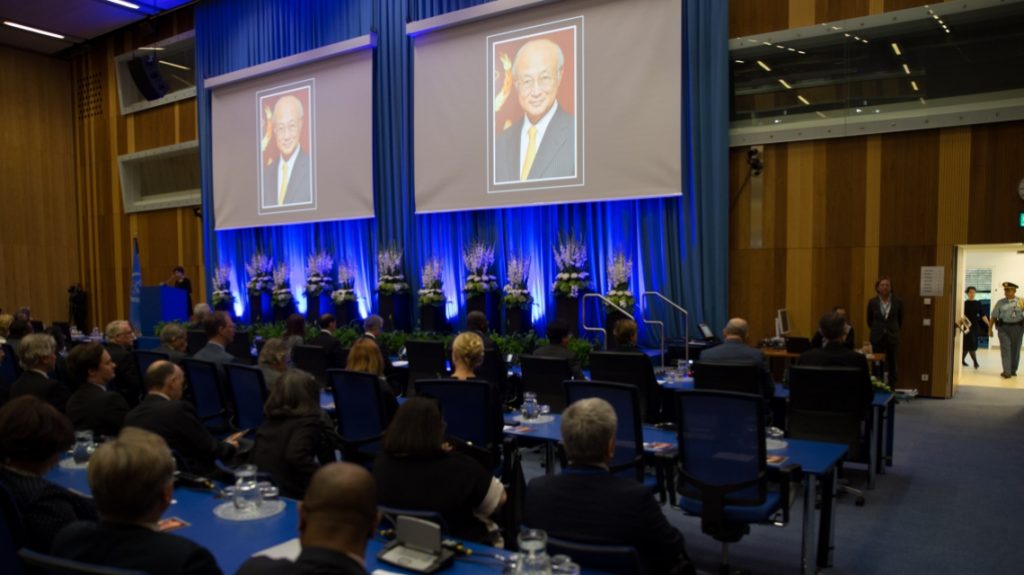
Following an unspecified medical procedure in September 2018, Amano had become noticeably more frail and was unable to carry out his regular duties on several occasions. He passed July 18, but the agency did not inform member states until July 22 at the request of Amano’s family not to disclose his death until his funeral.
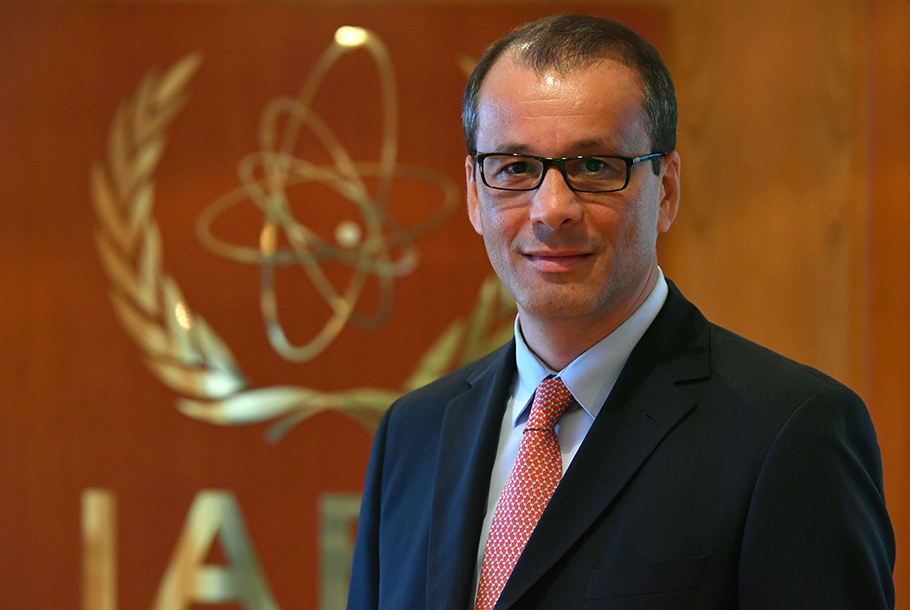 Within the week, the agency’s board of governors designated the current assistant director-general and chief coordinator Cornel Feruţă as Acting Director-General until a formal selection of a successor to Amano could be carried out.
Within the week, the agency’s board of governors designated the current assistant director-general and chief coordinator Cornel Feruţă as Acting Director-General until a formal selection of a successor to Amano could be carried out.
The Selection Framework
This process has been largely unchanged since the selection of Hans Blix in 1981. However, the agency has never had to fill a sudden vacancy in its top post as resulted from Amano’s untimely passing.
Immediately following the announcement of Amano’s stepping aside, two nominees immediately became front runners in the public media: Cornel Feruţă, of Romania, who would become Acting Director-General a few days later, and Rafael Grossi, Argentina’s ambassador to the IAEA and president of the 2020 NPT Review Conference.
The day before the close of nominations, two additional nominees were put forward. Lassina Zerbo, head of the Comprehensive Test Ban Treaty (CTBT) Organization, informed his staff that he would be a candidate and had regional support. He confirmed his candidacy in speaking with Al Aribya’s Rima Maktabi. Zerbo would bring significant experience and political acumen to the job, but recently drew Russia’s ire in criticizing its disabling of CTBTO monitors following a weapons test accident in the country.
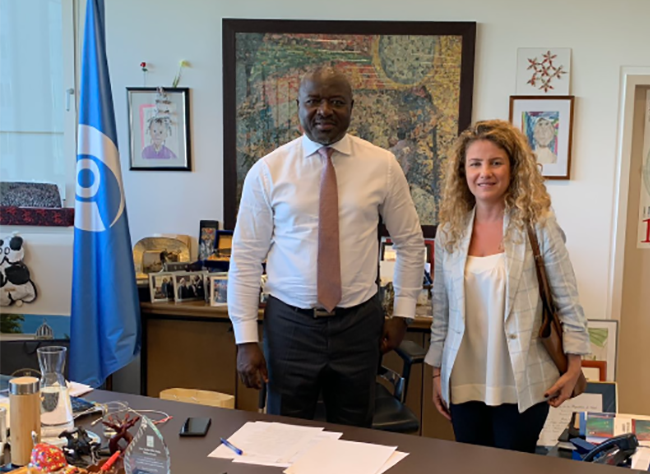
Slovakia has also reportedly nominated Marta Ziakova, head of its Nuclear Regulatory Authority since 2002. Ziakova chaired the IAEA board of governors in 2014-2015 and was elected as chair as 2018 General Conference.
Similar to most other intergovernmental organizations, the IAEA’s statutes do not detail the selection process of its top executive officer, rather leaving the process to be defined through consensus by its top governance body. In the IAEA, the board of governors, composed of 35 member states elected for two-year terms, typically announces the process at least a year before the end of the incumbent’s term, including a timetable for nominations and steps for narrowing the list of nominees and facilitating consensus among members.
Deadlines serve to diminish the politicization of the process that would otherwise encourage “dark horse” candidacies, those whom governments support but not formally nominate until after strategically voting against announced candidates. Such nominees are usually unknown (as candidates) to the majority of governments but become “compromise” candidates after others are eliminated from consideration.
Unfortunately, but not uncommon in multilateral selections, there are also no pre-defined qualifications required for nominees to the IAEA’s top post, despite the significant and substantive role the Director-General plays in shaping the international agenda on the proliferation and role of nuclear weapons and regulations of nuclear power. In those contests where such qualifications are defined in advance, they are critical in evaluating nominees more dispassionately and further reducing the politicization the selection.
Following the close of nominations, the IAEA board chair holds informal consultations with members. The aim of these consultations, in conjunction with periodical nonbinding straw polls by the board, is to facilitate consensus on a candidate and avoid formal balloting. If a consensus is unreachable, the board hosts several rounds of secret ballots, with the lowest vote-getter in each round eliminated as a candidate. This selection stage concludes when one of the remaining nominees secures two-thirds support from the board.
Initial Reactions and Agreement on a Timetable
The United States initially suggested that members of the board should not preclude the possibility of a speedy selection of a board-appointed candidate to be approved at the September 2019 General Conference. Russia balked at the suggestion, its ambassador to the IAEA noting in a July 27 tweet thread that while the selection must be “accelerated” and “reasonably fast,” it would be “impossible to arrange credible election of a new Director-General by the time of #IAEA General Conference in mid-September, as US publicly suggested.” Mikhail Ulyanov noted that the process must “provide time for proper nomination and consideration of candidates. Otervise (sic) the result wouldn’t be credible.”
The board finally agreed Aug. 1 that nominations would be accepted until Sept. 5, 2019. The body will next meet in Vienna between Sept. 9-13 and is likely to engage in a combination of expedited informal consultations, led by board chair Ambassador Leena Alhadid of Jordan, and the first of several straw polls to determine the levels of support for each of the nominees.
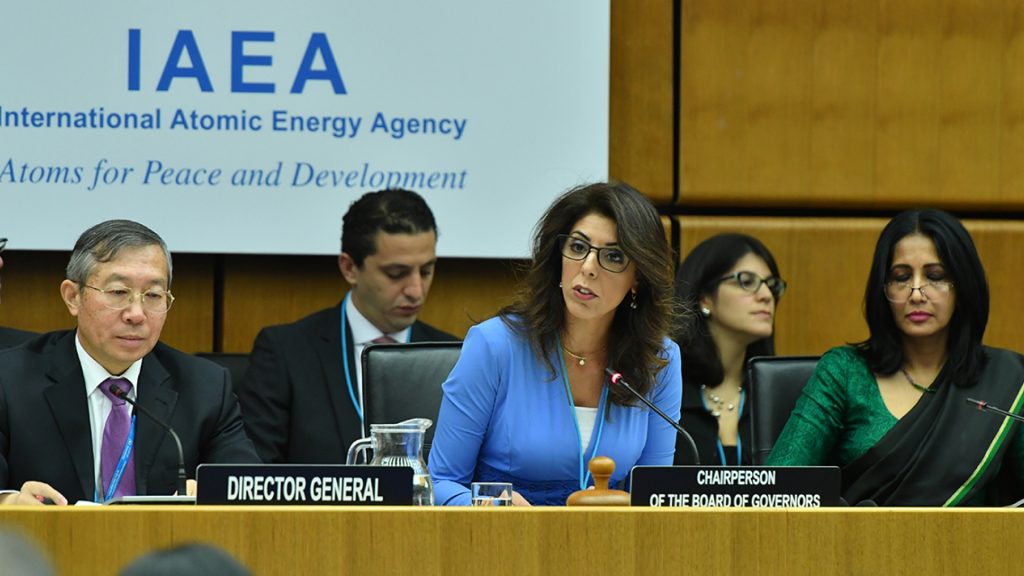
The Frontrunners
Given their current roles, Feruţă, Grossi, and Zerbo are each in optimal positions to engage member states on their qualifications and plans as the selection process unfolds.
From 2007 to 2012, Cornel Feruţă was Romania’s ambassador to the IAEA and other international organizations in Vienna. He served a member of the Board of Governors from 2008 to 2010 and presided over the 2011 General Conference. He chaired the 2012 NPT Preparatory Committee. Feruţă joined the agency’s secretariat in 2013 as assistant director-general and chief policy coordinator, a role that was effectively Amano’s chief of staff.
Likewise, Rafael Grossi currently serves as Argentina’s ambassador to the IAEA and other organizations in Vienna and was the Deputy Director-General of the agency from 2010 to 2013. He had been nominated for the post of Director General in 2015 and secured support for his candidacy from Brazil, Colombia, Bolivia, Chile, Ecuador, Peru, Cuba and Venezuela in 2015. However, as the year-long process wound down, the government of Argentina withdrew his nomination as it focused on other multilateral contests, intending to put Grossi forward at the end of Amano’s third term in 2021.
In May 2019, Grossi was appointed to chair the 50th-anniversary review conference of the nuclear Nonproliferation Treaty, a role which would afford him great opportunity to also discuss his proposals as a candidate to lead the IAEA. Grossi has not commented on whether he will step aside from this appointment as a candidate for Director-General or how preparations for the review conference will be impacted during his campaign. The consultations that he would be holding with members on the “potentially contentious” conference could present a potential conflict of obligations as have been noted in other multilateral contests.
Grossi’s formal nomination for the post was announced Aug. 2 during a news conference by the Argentine foreign ministry, accompanied shortly thereafter by an official video promoting his candidacy. The candidate subsequently released a letter outlining his priorities for the agency and has engaged actively as a candidate for the post. He has since received endorsements from foreign policy officials in Cuba and Paraguay.
In contrast, Feruţă has been less public about his interest in the post and no public announcement has been made to confirm that he is, in fact, a candidate for the post. According to Andreas Persbo, executive director of the Verification Research, Training and Information Centre in London, the Romanian foreign ministry circulated an official note verbal to IAEA member states Aug. 14 formally nominating Feruţă for the post, but neither Feruţă nor the Romania foreign ministry has confirmed this.
Argentina has asked for Russia’s endorsement of Grossi’s candidacy, but apart from a politely diplomatic tweet that “Rafael Grossi is a good colleague and professional,” none of the members on the agency’s board of governors have revealed their preference. Grossi plans to visit Moscow in the coming weeks to hold previously scheduled talks, during which his candidacy will no doubt be discussed. How closely those discussions go may well reflect how a Grossi director-generalship will engage the larger nuclear powers.
As the Executive Secretary of the CTBTO since 2013, Zerbo has demonstrated core experience in leading a prominent intergovernmental organization at the heart of the international nuclear regime. Though the treaty itself has yet to officially enter into force, the agency has played a significant role in advancing and solidifying international consensus over the norms which it advocates, in large part due to Zerbo’s proven diplomatic leadership and friendly public persona.
The selection of the next Director-General will hinge significantly on concerns related to the fallout from the potential collapse of the 2015 Iran nuclear deal and inspections that may arise from bilateral negotiations for denuclearization between the United States and North Korea. Iran’s foreign minister, Mohammed Javad Zarif, described Amano as “a stalwart support” of the nuclear deal, and tweeted “we expect his successor to follow the same path.”
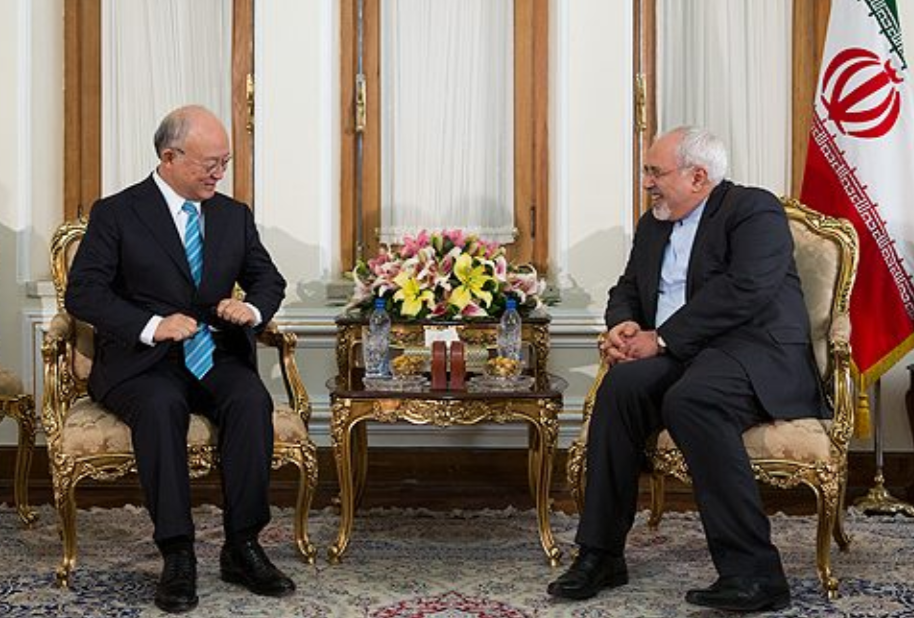
Feruţă is a strong backer of the JCPOA, having been heavily involved in the negotiations that lead to the deal in 2015. Zerbo discussed Iran’s possible ratification of the CTBT as a follow-on to further implementation of the JCPOA, but the U.S. withdrawal from the nuclear deal in 2018 and Iran’s recent breaches would need to be reversed before that again becomes a realistic possibility. Grossi as well favors restoration of the nuclear deal and offered a cautionary note that Iran should aim for the highest levels of transparency if it continues further enrichment breaches of the deal and later suggesting that the government should consider adopting Argentina’s model when it comes to nuclear power.
Closing the Deal
Despite the usual process providing for approval of the board’s appointee by the General Conference at its meeting immediately following the board’s meeting, the timetable calls for the board to make its final decision in October. Then the process would move to the General Conference for approval of the board’s appointee. “My understanding is that a special very short General Conference will be convened [in October] just to bless the appointment made by the Board,” noted Ambassador Ulyanov in an Aug. 1 tweet.
However, should a consensus elude the board, members will then engage in a round of “selection” polls, through which the lowest vote-getter in each round will be eliminated. When at least one nominee received 2/3 vote of the board, the board moves to an “appointment” stage. If agreed to by the board, the candidate that received 2/3 support in the “selection” stage is appointed by acclamation; otherwise, the board votes by secret ballot and the candidate is appointed if they receive 2/3 support in this final vote, pending approval by the General Conference.
With several highly experienced and qualified candidates already known, and perhaps others to come in before the deadline Thursday, it would not be surprising if the board will need to conduct a number of ballots before identifying its appointee for approval by the General Conference next month.
“If by the end of October nobody is appointed,” further noted Ulyanov, “then the whole cycle will be repeated again starting with another nomination of candidates with a view to finalizing the process by Christmas.” In 2008, Amano failed to initially secure the necessary support after a series of votes, leading the board to reopen nominations.
Consistent with the recent trend in multilateral leadership selection, the aim is to have the new director-general-designate assume office Jan. 1 of the new year. The officeholder would hold the post through the end of 2023.

